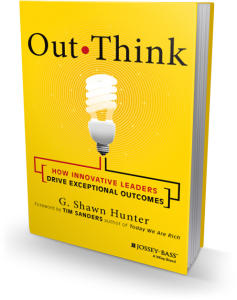Your “Smartphone” May Be Dumbing Down Your Conversations
“People who had conversations in the absence of mobile devices reported higher levels of empathetic concern.”
– Shalini Misra
American adults are consuming over 11 hours of digital media daily. Keep in mind we are only awake 16 to 17 hours a day.
It’s been steadily increasing over the years for American kids too. Today, on average, kids are spending over 7 hours immersed in “entertainment” screen time. And that’s outside of the screen time they may have at school working on computers doing homework or school-related activities.
It’s true that sometimes it’s nice to sit together at a coffee shop and absently chitchat about nothing while we scroll through our devices. Together, yet apart. But more often, we all want our conversations to be meaningful, connected, deep, expressive, honest, intentional, substantial, and empathetic. New research demonstrates that even the mere presence of a smartphone, in our hands or just sitting on the table between us, detracts from the quality of the conversation.
That’s right, even if we don’t actively look at it, the simple presence of a smartphone detracts from the quality of the conversation. Simply the anticipation of a text or alert distracts us from meaningful interaction.
In a recent study, researchers Shalini Misra and her colleagues asked 100 pairs of students to spend just 10 minutes talking about either a casual, light topic or alternately a deeper, more meaningful topic.
Meanwhile an observing researcher nearby noted the amount of non-verbal behavior and the amount of eye contact. After the conversation took place, the observer asked questions related to the quality of the conversation itself. Participants were asked to qualify their “feelings of interpersonal connectedness” and “empathic concern” they experienced during the conversation. Questions included “I felt I could really trust my conversation partner” and “To what extent did your conversation partner make an effort to understand your thoughts and feelings?”
The results were clear: “If either participant placed a mobile communication device on the table, or held it in their hand, during the course of the 10-minute conversation, the quality of the conversation was rated to be less fulfilling.”
“Mobile phones hold symbolic meaning in advanced technological societies. In their presence, people have the constant urge to seek out information, check for communication, and direct their thoughts to other people and worlds.”
While the use of devices and technology to allow people to communicate digitally increase, face-to-face interaction decreases.
Meet William Powers. A digital lifetime ago back in 2008, Bill Powers and his family decided to reclaim their lives from their devices. He, his wife and now 17-year-old son were increasingly spending their evenings and weekends facing away from each other and spending hours deeply entranced by their screens, instead of each other.
They are certainly no Luddites. Bill is a researcher and journalist, and his wife is a novelist, so they both spend long hours at their computers, researching and writing. They are also both keenly aware that the internet and their ability to connect digitally grants them the freedom to work at home, and make a living because of the information and connectedness they enjoy from the internet.
But they were also spending less and less time simply talking with one another, and instead texting and emailing each other from across the house. They were spending less and less time taking walks, enjoying the outdoors, and spending meaningful time with one another.
For the past 7 years, their family practices something they call “selected disconnection.” Each weekend they have an Internet Sabbath. Starting late Friday evening until Sunday evening, they turn off the WiFi in their house, and their smartphones, and their computers, and they disconnect digitally.
When they first started the experiment, Bill said, “It almost had an existential feeling of, ‘I don’t know who I am with the Internet gone.’ But after a few months it hardened into a habit and we all began to realize we were gaining a lot from it.”
Ok, so maybe the thought of totally disconnecting for two days is terrifying or unrealistic. Start with just an hour, or two. Then if you think it’s a meaningful exercise for you or your family, turn it into a whole evening. Worst case scenario is you all learn something. And that’s a good thing.
- Join my Email updates for regular updates on leadership and life
- Learn more about my Speaking work
____________________________________________________

Twitter: @gshunter
Say hello: email@gshunter.com
Web: www.shawnhunter.com



